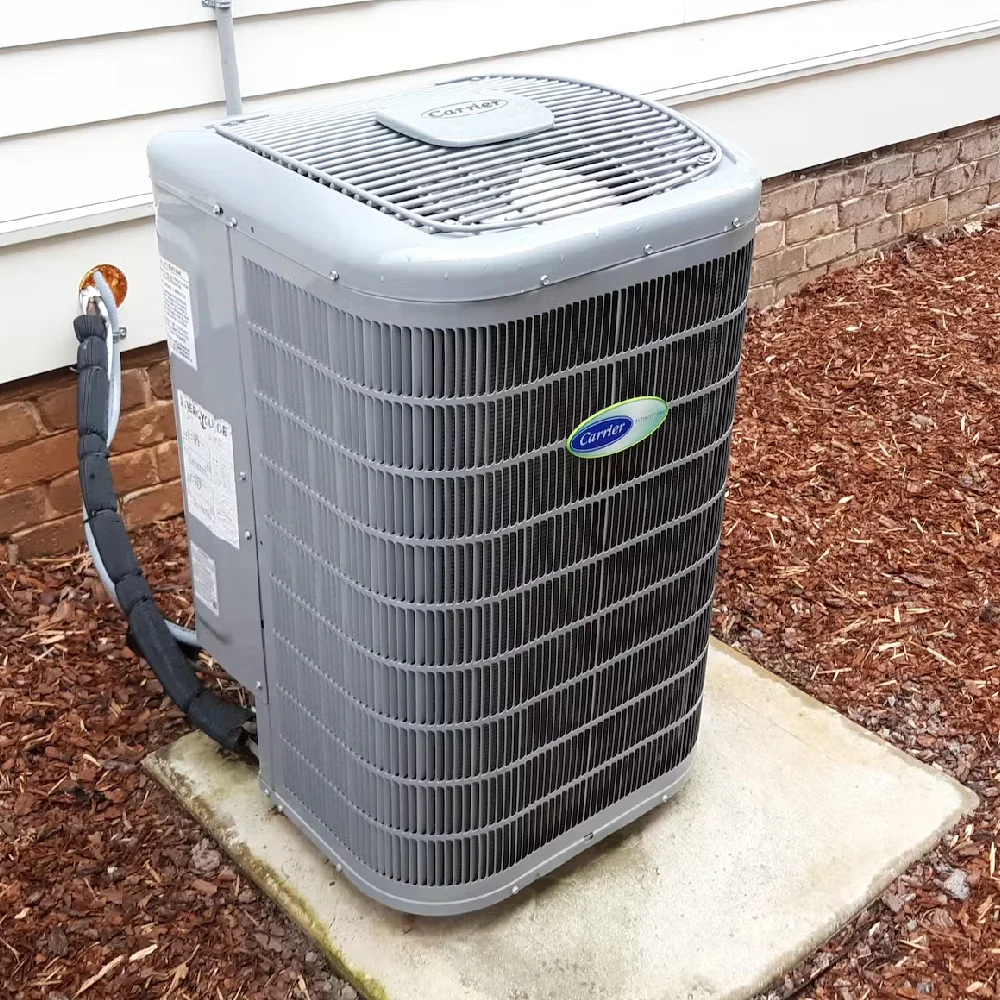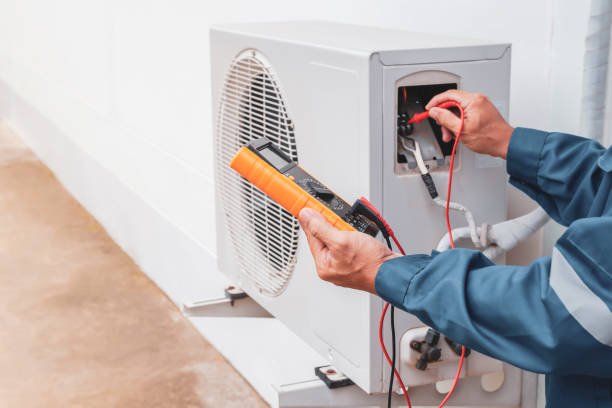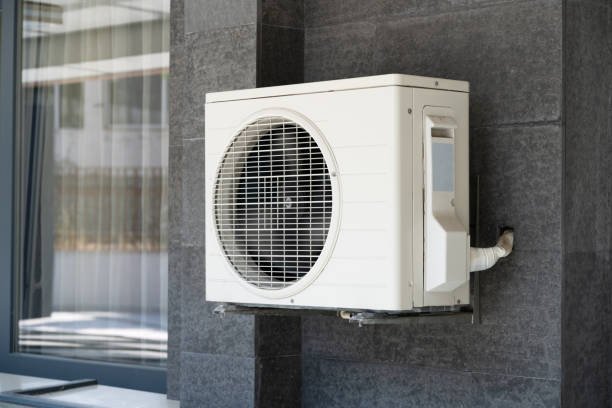
Understanding the Average Life Expectancy of an HVAC Unit
Introduction
The HVAC (Heating, Ventilation, and Air Conditioning) system is a cornerstone of comfort in residential and commercial spaces. It's not just about keeping your home cool in the summer or warm in the winter; it’s a crucial system that ensures air quality and energy efficiency. However, as vital as it is, many homeowners overlook one essential aspect: the average life expectancy of an HVAC unit. Understanding this can save you both money and frustration down the line.
In this article, we’ll dive deep into everything you need to know about the lifespan of your HVAC system—what affects it, how to extend it, when to consider replacement, and much more. So grab a cup of coffee and let’s get started!
Understanding the Average Life Expectancy of an HVAC Unit
The average lifespan of an HVAC unit varies significantly based on several factors such as brand, model, usage, maintenance routines, and environmental conditions. Generally speaking, most HVAC units last between 15 to 25 years. However, there are outliers depending on specific circumstances.
What Factors Affect Life Expectancy?
- Central air conditioning systems typically last 15-20 years.
- Heat pumps can have a lifespan of about 10-15 years.
Maintenance Practices
Regular maintenance plays a crucial role in extending the life expectancy of your unit. Neglecting routine air conditioner service can lead to early breakdowns.


Usage Patterns
Homes that run their systems year-round will naturally experience more wear and tear than those that use them seasonally.
Quality of Installation
Poor installation practices can shorten an HVAC unit's lifespan significantly.
Environmental Factors
Units exposed to extreme weather conditions may age faster than those in moderate climates.
How Often Should You Service Your HVAC?
Regular maintenance is paramount for enhancing your unit's longevity. Ideally, you should schedule professional air conditioner service at least twice a year—once before summer and once before winter.
- Spring Maintenance: Focus on cleaning coils and checking refrigerant levels.
- Fall Maintenance: Inspect heating components and ensure everything is functioning properly for winter.
The Role of Air Conditioner Service
With proper care through consistent air conditioner service near me, you can catch minor issues before they escalate into costly repairs or replacements. This proactive approach extends your HVAC's life while ensuring optimal efficiency.
Signs That Your HVAC Unit Is Aging
Knowing when to replace your unit can save you from unexpected costs later on. Here are some signs that indicate it's time for a new system:
- Increased energy bills
- Uneven heating or cooling
- Frequent breakdowns requiring AC repair near me
- Age surpassing 15 years without major upgrades
Common Myths About HVAC Lifespan
Myth 1: "HVAC Units Last Forever"
While many systems are designed for longevity, nothing lasts forever. Regular checks and air conditioning repair near me services are essential for ensuring its peak performance.
Myth 2: "I Can Ignore Minor Problems"
Ignoring minor issues often leads to larger problems over time—catch them early with regular maintenance.
Myth 3: "All Brands Are Equal"
Different manufacturers produce units with varying lifespans—conduct thorough research before making a purchase decision.
Importance of Choosing Quality Brands
When selecting an HVAC unit for installation or replacement, opting for reputable brands can make all the difference in longevity:
| Brand | Average Lifespan | |-------------------|------------------| | Trane | 20+ Years | | Lennox | 15-20 Years | | Carrier | 15-25 Years | | Goodman | 10-15 Years |
Choosing high-quality brands often pays dividends view in durability and efficiency over time.
How to Extend Your HVAC Unit’s Lifespan?
Here are some strategies homeowners can employ:
Regular Maintenance Checks Engage professionals for regular inspections; they often catch potential issues before they become serious problems.
Change Filters Frequently Dirty filters restrict airflow leading to increased strain on your system which could reduce its lifespan significantly.
Seal Ductwork Leaky ducts waste energy; sealing them ensures efficient operation resulting in less wear on your unit.
Upgrade Thermostat Smart thermostats optimize energy usage by adjusting temperatures based on your daily schedule—reducing load on your system!
Invest in Quality Installation Ensure that any new AC installation occurs through licensed professionals who understand the intricacies involved—poor installations lead to premature failures!
The Cost-Benefit Analysis of Replacing vs Repairing Your HVAC Unit
Deciding between repairing or replacing your HVAC unit isn’t straightforward; here’s what you should consider:
When To Consider Repairs
When To Replace Your Unit
FAQs
What Is The Average Lifespan Of An Air Conditioner?
The average lifespan ranges between 15 to 25 years depending primarily on maintenance practices and quality of installation.
How Can I Tell If My Air Conditioning Needs Repair?
Signs include inconsistent temperatures throughout your home, strange noises during operation, or increased energy bills indicating inefficiency.

What Are Common Issues Leading To AC Repair?
Refrigerant leaks, clogged filters, or malfunctioning thermostats are common culprits prompting homeowners to seek AC repair near me services.
How Often Should I Clean My Air Filters?
You should clean or replace filters every one to three months depending on usage frequency and environmental conditions like dust accumulation rate.
Why Is Professional Service Important For My HVAC System?
Professional servicing helps identify issues early on that might otherwise go unnoticed until they escalate into major problems leading potentially expensive repairs down-the-line!
What Should I Look For In An AC Installation Service Provider?
Seek out licensed contractors with positive reviews focusing specifically on their expertise regarding different brands/types—ask about warranties too!
Conclusion
Understanding the average life expectancy of an HVAC unit is pivotal for any homeowner wishing to maintain comfort while managing expenses efficiently! By investing time into regular maintenance checks combined with informed decisions regarding repairs versus replacements—you’ll extend not only the lifespan but also enhance performance levels across seasonal fluctuations!
Incorporating professional services like air conditioner service near me ensures proactive measures keep those pesky breakdowns at bay! Remember—the key hvac services lies within understanding what affects longevity while taking actionable steps towards preserving comfort within our living spaces!